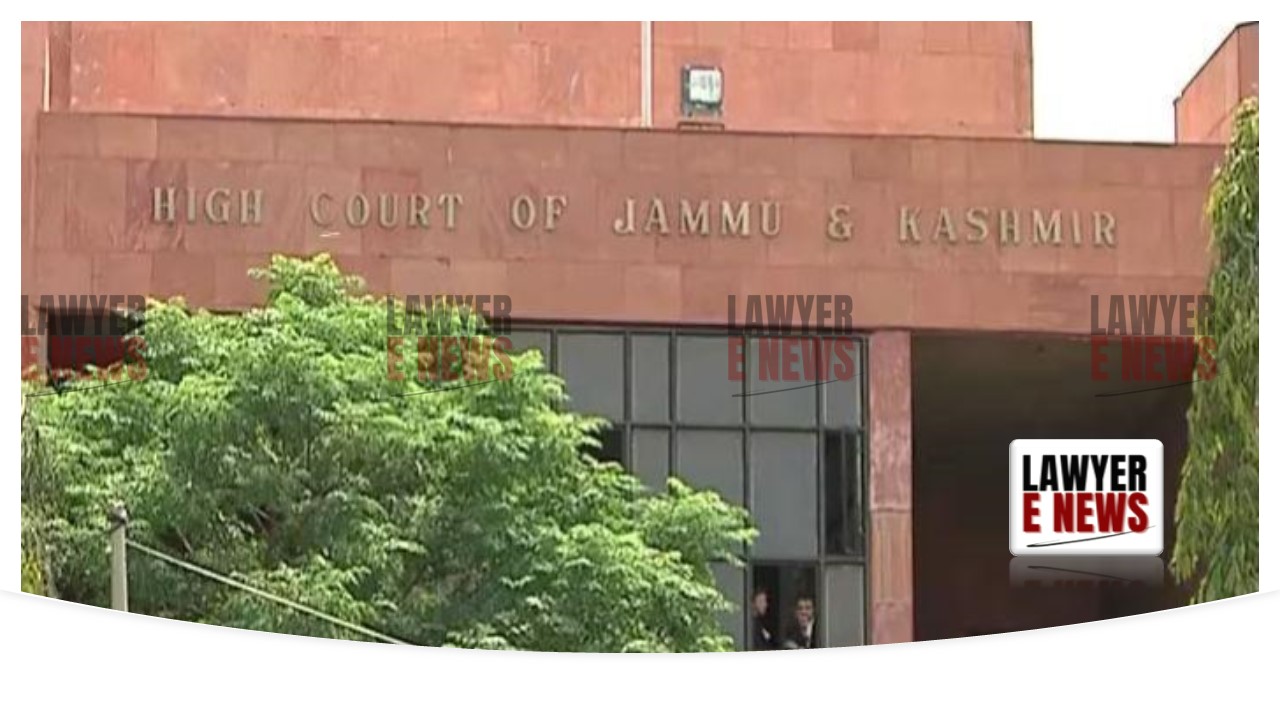-
by Admin
15 February 2026 5:35 AM



Suspicion, however grave, cannot replace proof. Convictions must rest on clear, cogent, and unimpeachable evidence, High Court of Jammu & Kashmir and Ladakh overturned the conviction of Ravinder Singh in a landmark decision that emphasized the principles of reasonable doubt and evidentiary standards in criminal cases. The Court allowed Ravinder Singh's appeal and set aside his conviction under Sections 324 and 325 of the Ranbir Penal Code (RPC) and Section 4/25 of the Arms Act. Concurrently, the Court dismissed the revision petition (CRR No. 20/2015) filed by the injured complainant, Chandu Ram, challenging the appellant's acquittal under Section 307 RPC and the exoneration of a co-accused.
The judgment, delivered by Hon’ble Justice Vinod Chatterji Koul, highlighted critical flaws in the prosecution’s case, including reliance on hostile witness testimonies, lack of forensic evidence, and the failure to examine a medical expert. Justice Koul observed: “Suspicion, no matter how strong, cannot replace legal proof. The prosecution’s failure to conclusively establish guilt entitles the accused to the benefit of reasonable doubt.”
The case arose from an alleged assault on October 28, 2003, in Kathua district. The complainant, Chandu Ram, accused Ravinder Singh (armed with a sword) and Hari Singh (armed with a lathi) of attacking him. According to the complainant, Ravinder Singh attempted to strike him on the neck, but the blow landed on his shoulder. The prosecution claimed the accused then pursued the complainant, inflicting further injuries on his head and back.
The Trial Court convicted Ravinder Singh under Sections 324 (voluntarily causing hurt by dangerous weapons) and 325 (grievous hurt) RPC and under Section 4/25 of the Arms Act. He was sentenced to four years of imprisonment. However, the Court acquitted him of charges under Section 307 RPC (attempt to murder) and exonerated Hari Singh of all charges. The injured complainant, dissatisfied with the partial acquittals, filed a revision petition, while Ravinder Singh appealed his conviction.
The High Court took issue with the Trial Court’s reliance on witnesses who had turned hostile or provided conflicting testimonies. Witnesses such as PW-Sardar Singh, PW-Janak Singh, and PW-Govind Singh either contradicted themselves or admitted to not witnessing the incident. Justice Koul emphasized that the statements of hostile witnesses can only be relied upon to the extent they corroborate reliable evidence. He observed:
“The Trial Court’s reliance on untrustworthy and inconsistent witness statements renders the conviction unsustainable.”
The recovery of the alleged weapon (a sword) was not supported by any forensic evidence linking it to the injuries. The weapon was neither examined for bloodstains nor fingerprints. Justice Koul highlighted this as a major investigative lapse, stating:
“In the absence of forensic evidence, it cannot be said with certainty that the recovered weapon was used in the alleged crime.”
The Trial Court relied on an injury certificate issued by a doctor who was not called as a witness during the trial. The High Court held that this deprived the accused of the opportunity to cross-examine the medical expert, thereby prejudicing the defense. Justice Koul remarked:
“The medical evidence is crucial to corroborate the prosecution’s case. Non-examination of the doctor who issued the injury certificate is a fatal flaw that undermines the reliability of the evidence.”
The Court reiterated the foundational principle of criminal law that the prosecution bears the burden of proving guilt beyond a reasonable doubt. Justice Koul cited the Supreme Court’s decision in Sujit Biswas v. State of Assam, observing:
“The mental distance between ‘may be true’ and ‘must be true’ must be bridged by clear, cogent, and unimpeachable evidence. Suspicion, however grave, cannot replace proof.”
The Court found that the Trial Court failed to provide the accused a fair opportunity to explain the incriminating evidence under Section 342 CrPC (analogous to Section 313 of the Indian CrPC). This procedural lapse further vitiated the conviction.
"The prosecution must establish guilt through evidence that is cogent, credible, and consistent. Hostile witnesses, absent forensic corroboration, and unexplained procedural lapses leave significant gaps in the chain of evidence. A conviction based on conjecture rather than proof cannot withstand appellate scrutiny."
The High Court allowed Ravinder Singh’s appeal, acquitted him of all charges, and quashed the Trial Court’s judgment dated November 29, 2013. It also dismissed the injured complainant’s revision petition, emphasizing that the benefit of doubt must always go to the accused when the prosecution’s case is fraught with inconsistencies and inadequacies.
This judgment underscores the paramount importance of adhering to evidentiary standards and procedural fairness in criminal trials. By acquitting the accused, the High Court reaffirmed the principle that justice must not only be done but must also appear to be done. The reliance on untrustworthy witness testimonies, absence of forensic support, and failure to examine crucial witnesses collectively rendered the prosecution’s case untenable.
Date of Decision: November 19, 2024
